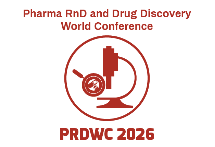Speakers - 2025
Pedro Fonte
- Designation: University of Algarve
- Country: Portugal
- Title: Functionalization of Biomaterials for Drug Delivery Applications
Abstract
The functionalization of biomaterials has emerged as a pivotal strategy in advancing drug delivery systems, enhancing therapeutic efficacy, and minimizing adverse effects. We explored novel approaches to biomaterial modification, focusing on antimicrobial cellulose-based materials and mesoporous silica nanoparticles (MSNs) as drug carriers. Carbohydrate-binding modules to functionalize cellulose with cationic antimicrobial peptides confers enhanced antibacterial activity against Gram-positive and Gram-negative bacteria. This bio-recognition strategy provides a stable, orientation-controlled peptide immobilization, rendering cellulose-based materials promising for wound dressings and scaffold engineering. Also, MSNs functionalized with CpG oligodeoxynucleotide (CpG ODN) to deliver camptothecin (CPT) for skin cancer treatment. By employing chitosan-coated MSNs, this system achieves high drug encapsulation efficiency and targeted delivery while leveraging CpG ODN’s immunostimulatory effects. In vitro and in vivo studies demonstrate enhanced cytotoxicity against cancer cells and significant tumor regression. Together, these functionalization strategies exemplify the potential of biomaterials in creating next-generation antimicrobial surfaces and targeted drug delivery platforms.


